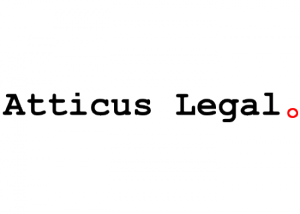BAD DEBTS & HOW TO MINIMISE THEM. HOW TO IMPROVE DEBT COLLECTION. AND HOW TERMS OF TRADE CAN HELP.
Business debt collection and credit management have five cardinal rules:
- Know who you are contracting with – a sole trader, partnership, company?
- A leopard rarely changes its spots – a customer with a bad credit history will likely be a bad credit risk for you as well;
- The squeaky wheel gets the oil/money – chase debtors to get paid;
- Ensure you have good written terms of trade to maximise your legal remedies and allow you to recover full debt collection costs;
- Take steps promptly if the customer defaults – don’t allow the situation to get any worse.
Atticus Legal, Specialist Business Lawyers Hamilton
At Atticus Legal, Business Lawyers Hamilton, we know all about debt collection and how to minimise bad debts. The solutions are briefly summarised below. So call us if you need help.
Some good reasons for credit management
Credit management does not have to be difficult, but it does require some discipline and sticking to a process. Often business owners and managers are afraid to upset customers by asking for money. News alert! The customer knows he/she owes you money. And they know you are a small business that can’t afford to carry them. They may be quite willing to take advantage of your discomfort by using your business as an overdraft.
Sound credit management will give better results than the opposite, which is to allow loose overly-generous credit to customers when you can’t afford to do so. If you insist on doing just that then your business will most definitely suffer. Bad debts have brought down many a business. There are no gold medals for being too generous (or shy). Proactive steps need to be taken to minimise bad debts. Ok that’s enough for the pep talk. Let’s move onto real-world steps you can take.
How good terms of trade can help minimise bad debts
First let’s look at terms of trade because that’s where lawyers come in, like Atticus Legal. Some small businesses don’t have terms of trade or other documentation or processes to assist credit management – eg. a credit application form signed by the customer and credit check procedures. Their business is based on a handshake, issuing either a verbal or written quote and maybe an attempt to include payment terms on the back of their invoices. However, trying to incorporate terms in your contracts with customers by placing them on the back of invoices is legally ineffective and unenforceable. This is explained in the Atticus Legal article ‘What are terms of trade? And do I need terms of trade?’ on our website at https://atticuslegal.co.nz/what-are-terms-of-trade-do-i-need-terms-of-trade/
What should your terms of trade include to minimise bad debts?
Effectively, your above-mentioned terms on the back of your invoice are not worth the paper they are written on. It’s too late. The (verbal or written) contract was legally formed well before invoice stage. Without binding written terms of trade which include appropriate default-related terms you will not be legally entitled to:
- charge default interest;
- recover full debt collection costs (including full legal costs if the debt recovery goes to court);
- reverse any discount where a payment default occurs;
- suspend further work/delivery where a payment default occurs;
- seize and re-sell your unpaid goods (this requires a retention of title clause);
- recover the debt from an individual where the customer is a company (this requires a written personal guarantee); or
- carry out a credit check (eg. through Veda) as this requires a written privacy waiver/consent to authorise your credit check (in the case of an individual).
All of the above are ‘gold’ in a debt collection/credit management situation. Atticus Legal are expert business lawyers. We know terms of trade inside-out and we’re here to help. Call us if you want to put in place terms of trade or review your existing terms of trade or need help when all else fails (see below).
It’s all about the evidence
Be aware that if you wish to enforce your terms of trade and recover amounts owing through either the Courts or the Disputes Tribunal (ie. earlier credit management steps have been unsuccessful) you must be able to prove the terms of your contract with the customer. Good records will be crucial in bad debts recovery.
Verbal agreements can be enforceable, but they are very difficult to prove to the satisfaction of a court. And verbal agreements are almost always short on detail, even if you can prove them. Without written evidence of your terms of trade having been legally disclosed to, and acknowledged by, the customer (ie. when the contract was formed, not after your started supplying goods/services), none of the above ‘golden’ debt collection terms will apply and/or be provable.
Useful credit management practices to help with debt collection
Other recommended credit management practices that help minimise bad debts (ie. before they turn into bad debts) include:
- Ensure the customer correctly completes and signs any credit application (with your terms of trade attached) and keep these documents so you can prove them if needed;
- Ensure quotes are in writing and keep a record of the quote and the acceptance;
- In the case of one-off quotes, always attach a copy of your terms of trade. Ask the customer to sign the quote to confirm acceptance and also ask them to initial each page of your attached terms of trade;
- Record any variations or extras (and customer acceptances) in writing (email will usually do);
- In the case of new company customers, check the company itself and its directors and shareholders at the Companies Office website (this may reveal earlier involvement in failed companies) – it’s free!;
- In the case of a new sole trader/partnership customer (note for individuals your terms need to include a privacy waiver/consent) and also for new company customers where you are providing credit terms, get a credit report on the company/individuals involved (eg. through Veda). As mentioned above, past insolvency is a good predictor of risk of future credit risk. Only allow credit to credit-worthy customers. Stop further credit as soon as a customer is overdue (cardinal rule – don’t let the situation get worse);
- Send out statements promptly at the end of each month;
- Consider tightening your terms of credit (eg. 7 or 14 days rather than 20th of month following invoice);
- Have your invoices prominently state the due date for payment;
- Send your invoices promptly following completion of work/goods supplied;
- Charge interest on overdue accounts if permitted by your terms (eg. 2% per month) and include interest charged in your statements;
- Regularly contact (especially by phone) overdue debtors, say 14 days after due date and then more frequently until paid (squeaky wheel cardinal rule). Remember that if your payment terms (perhaps too generously) allow a month to pay from date of invoice and you then wait another 14 days before calling them, then they have already had 6 weeks of credit from you (and your overdraft)!
What if the above doesn’t work? How can Atticus Legal help recover bad debts?
Contact Atticus Legal and/or a debt collection agency if a significant overdue account continues unpaid for say, 2 months or more. We can help you recover bad debts. Firstly, Atticus Legal would send a demand letter both to your customer and, if a company, to any guarantor. This alone can produce results. Other later steps include using a shock tactic such as a ‘winding up notice’ in the case of a company. We can also advise on the steps required to recover your unpaid goods if your terms of trade include a retention of title. Ultimately, debt recovery proceedings may need to be filed in court or (if the debt is disputed) in the Disputes Tribunal.
WANT TO KNOW MORE? Just ask Atticus Legal, Business Lawyers Hamilton
CALL ANDREW SMITH, the owner of Atticus Legal, for expert professional advice on any of the matters referred to in this information sheet.
TO RECEIVE FURTHER INFORMATION SHEETS FROM ATTICUS LEGAL please ‘like us’ on Facebook to ensure you receive our future posts.
SMALL BUSINESS LAWYERS HAMILTON, COMMERCIAL LAWYERS HAMILTON
11 Garden Place (Level 7), HAMILTON
Ph: (07) 839 4558, Fax: (07) 839 4559, Mob: 021 508 189
Email: andrew@atticuslegal.co.nz
SEE OUR WEBSITE: https://atticuslegal.co.nz/
Disclaimer: The information contained in this information sheet is, of necessity, of a general nature only. It should not be relied upon without appropriate legal advice specific to your particular circumstances.
This information sheet is copyright © Atticus Legal, September 2016.



